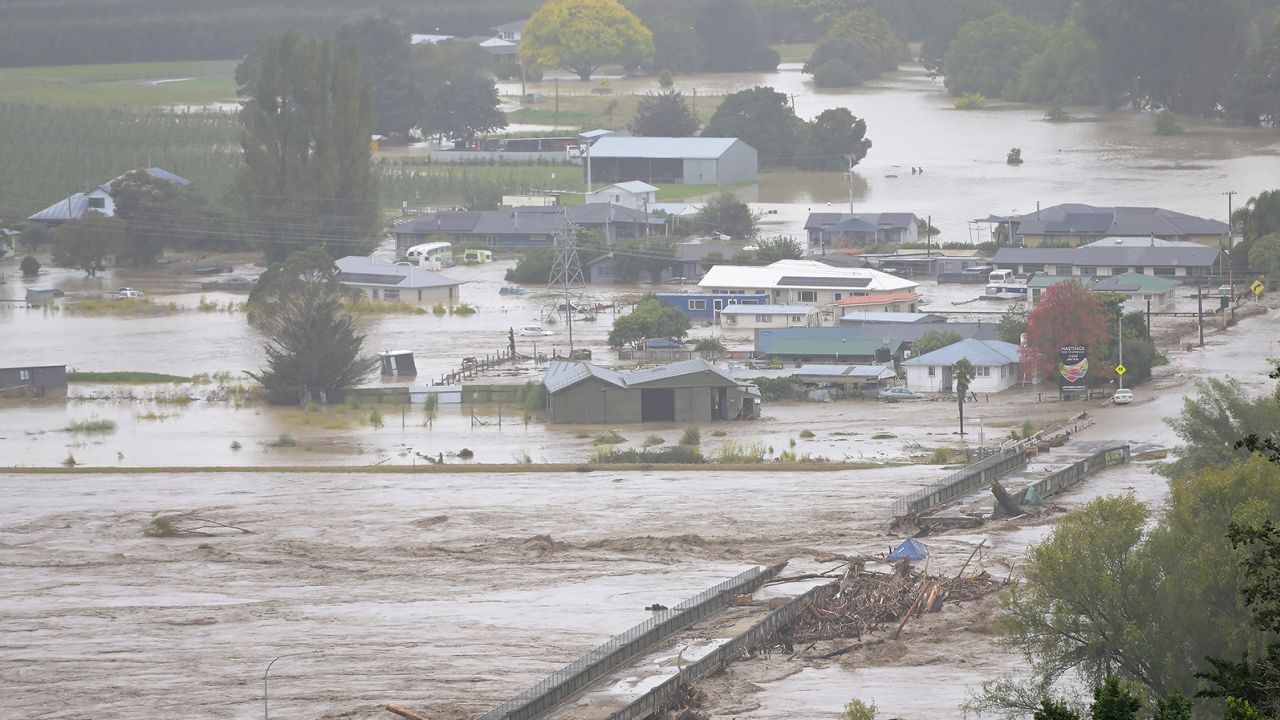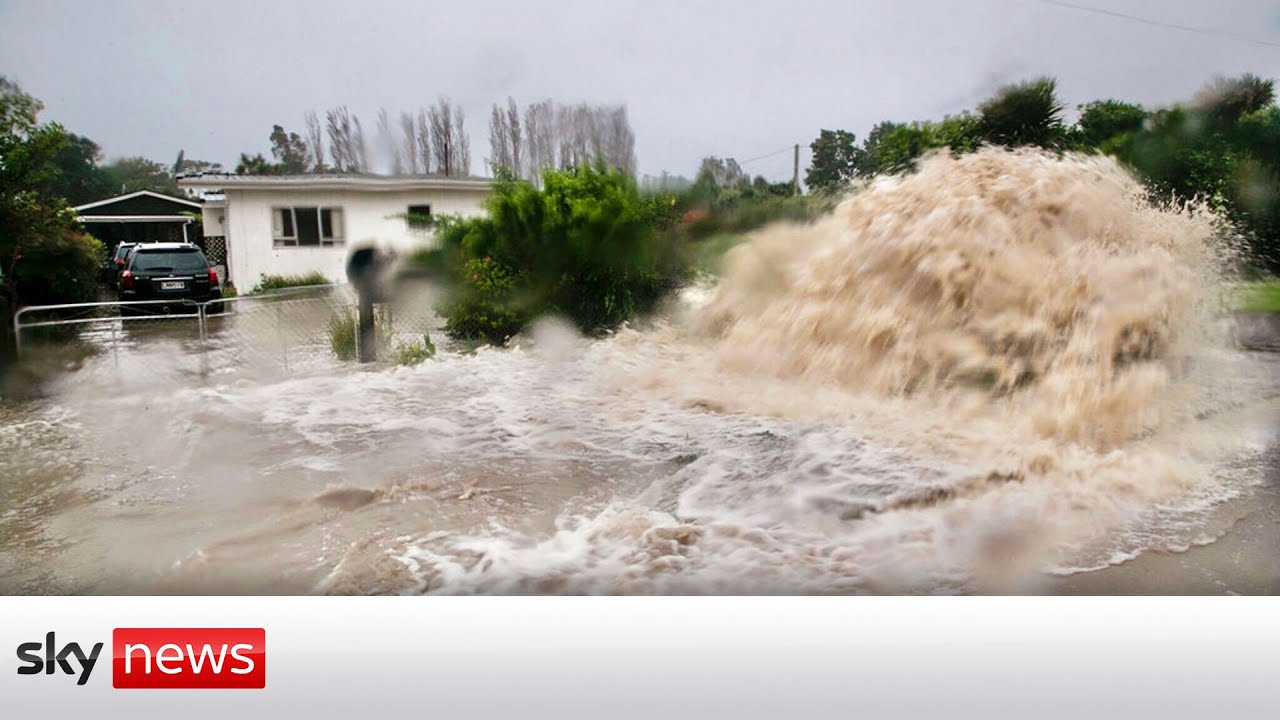Cyclone Gabrielle Hits North Island While New Zealand Declared National Emergency
On Tuesday, as Cyclone Gabrielle lashed the North Island with wind and rain, leaving tens of thousands without electricity, New Zealand declared National Emergency for the third time in the country's history.
Author:Dexter CookeReviewer:Hajra ShannonFeb 15, 202313.6K Shares649.3K Views

On Tuesday, as Cyclone Gabrielle lashed the North Island with wind and rain, leaving tens of thousands without electricity, New Zealand declared National Emergencyfor the third time in the country's history.
The New Zealand Meteorological Service reported winds of more than 140 kilometers per hour (87 miles per hour) along the coast, with waves reaching heights of up to 11 meters (36 feet) high near the Bay of Islands.
To hear Prime Minister Chris Hipkins tell it, the nation didn't know the extent of the calamity until Tuesday morning.

Cyclone Gabrielle: New Zealand declares national state of emergency
Impact On New Zealand
Cyclone Gabrielle is expected to bring heavy rain and strong winds to much of New Zealand's North Island, as well as the top of the South Island.
The MetService, New Zealand's national weather agency, has issued a severe weather warning for many parts of the country, including Auckland, Waikato, Bay of Plenty, and Northland.
The cyclone is expected to cause widespread flooding, landslides, and damage to infrastructure, including roads and buildings.
Government Response And Relief Efforts
The New Zealand government has responded to the crisis by declaring a national emergency, activating the National Crisis Management Centre, and urging people to take precautions.
The Defence Force, police, and emergency services have been working together to clear roads and restore essential services. The government has set up an emergency response centre in Wellington, where officials are coordinating the response to the disaster.
Local communities and volunteers have also been working to support relief efforts. Many businesses and individuals have offered assistance, such as providing food and shelter to those affected by the cyclone.
The New Zealand Red Cross has launched an appeal to raise funds for those affected by the disaster, with donations going towards emergency relief and support for affected communities.
Climate Change And Extreme Weather
The impact of Cyclone Gabrielle highlights the increasing frequency and severity of extreme weather events, which are becoming more common due to climate change.
New Zealand has experienced several extreme weather events in recent years, including floods, droughts, and wildfires. The government has been taking steps to address the issue, including setting a target of net-zero emissions by 2050 and investing in renewable energy.
The impact of Cyclone Gabrielle on New Zealand is a reminder of the growing threat of extreme weather events due to climate change. It is essential that governments take urgent action to reduce greenhouse gas emissions and adapt to the changing climate to mitigate the impact of these events.
The response to Cyclone Gabrielle highlights the importance of preparedness and effective emergency response efforts in the face of extreme weather events, and the need for continued investment in infrastructure and resources to protect communities from the effects of climate change.
Final Words
Cyclone Gabrielle has caused significant damage and disruption to communities across New Zealand, highlighting the need for continued investment in infrastructure and resources to mitigate the impact of extreme weather events.
The government response to the crisis demonstrates the importance of preparedness and effective emergency response efforts in the face of natural disasters, as well as the role of community and volunteer support in times of crisis.

Dexter Cooke
Author
Dexter Cooke is an economist, marketing strategist, and orthopedic surgeon with over 20 years of experience crafting compelling narratives that resonate worldwide.
He holds a Journalism degree from Columbia University, an Economics background from Yale University, and a medical degree with a postdoctoral fellowship in orthopedic medicine from the Medical University of South Carolina.
Dexter’s insights into media, economics, and marketing shine through his prolific contributions to respected publications and advisory roles for influential organizations.
As an orthopedic surgeon specializing in minimally invasive knee replacement surgery and laparoscopic procedures, Dexter prioritizes patient care above all.
Outside his professional pursuits, Dexter enjoys collecting vintage watches, studying ancient civilizations, learning about astronomy, and participating in charity runs.

Hajra Shannon
Reviewer
Hajra Shannona is a highly experienced journalist with over 9 years of expertise in news writing, investigative reporting, and political analysis.
She holds a Bachelor's degree in Journalism from Columbia University and has contributed to reputable publications focusing on global affairs, human rights, and environmental sustainability.
Hajra's authoritative voice and trustworthy reporting reflect her commitment to delivering insightful news content.
Beyond journalism, she enjoys exploring new cultures through travel and pursuing outdoor photography
Latest Articles
Popular Articles